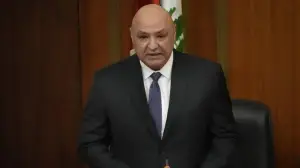A dangerous escalation between Israel and Iran has triggered fresh international alarm, with world leaders warning that the Middle East region stands on the precipice of a wider conflict.
The crisis deepened after Israel conducted a large-scale air assault on Iranian territory on Friday, targeting key nuclear facilities in Natanz, Fordo, and Isfahan, along with military command centers. The strikes, launched during Iran's traditional day of rest, reportedly killed several high-ranking Iranian officials and nuclear scientists.
Iran swiftly condemned the attacks as a "declaration of war" and launched retaliatory missile strikes on Israeli cities, including Tel Aviv and the Gush Dan region. Israeli media reported dozens of injuries and at least one fatality from these counterattacks.
Key Developments in the Conflict
Nuclear Infrastructure Targeted: Israel's operation included repeated missile strikes on Natanz's underground enrichment facility. Iranian authorities reported limited damage to facilities at Fordo and Isfahan. The UN's nuclear watchdog has confirmed that radiation levels outside the affected areas remain stable.
High-Profile Casualties: Iranian officials confirmed the deaths of several top military figures, including Revolutionary Guards commander Hossein Salami, armed forces chief Mohammad Bagheri, and aerospace commander Amirali Hajizadeh, who played a crucial role in Iran's ballistic missile program.
Iran's Response: In retaliation, Iran launched over 100 drones and ballistic missiles at Israel. While Israeli authorities claim most drones were intercepted, missile strikes caused dozens of injuries, with air raid sirens sounding repeatedly across central Israel.
Regional Disruptions: The conflict has forced airspace closures over Iran, Iraq, Jordan, Syria, and Israel, with numerous flight cancellations. Iranian authorities have also imposed internet restrictions across the country, citing national security concerns.
International Response
The UN Security Council has convened an emergency meeting, with Secretary-General António Guterres urging both nations to pull back from the brink and pursue diplomatic solutions. The International Atomic Energy Agency (IAEA) has announced plans for an emergency session on Monday.
While the United States was reportedly informed of the Israeli operation beforehand, President Donald Trump denied direct involvement. However, he issued a stern warning to Iran, suggesting that future Israeli actions "could be even more brutal" and encouraged Tehran to de-escalate.
Iran continues to maintain that its nuclear program is peaceful, despite enriching uranium at 60% – significantly above levels permitted under the now-defunct 2015 nuclear deal. Planned nuclear talks scheduled for this weekend in Oman have been postponed due to the escalating violence.
Future Concerns
With reports indicating over 200 targets struck by Israel and ongoing retaliatory fire, analysts fear other regional actors could be drawn into the widening conflict. Economic concerns are also mounting, particularly regarding potential disruptions to oil shipments through the Strait of Hormuz, a critical route for global crude oil supplies.
Global leaders continue to call for restraint, but the situation remains volatile, with neither Israel nor Iran showing signs of backing down from their positions.
The second victim of the Iranian missile strike has been identified as Etti Cohen Engel, according to BenriNews sources.
Meanwhile, Israel's defense minister has issued a stark warning that "Tehran will burn" if Iran launches more missiles, signaling potential further escalation in the coming days.
Follow BenriNews for the latest updates on this developing story:













